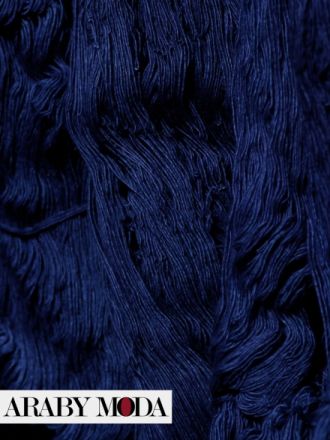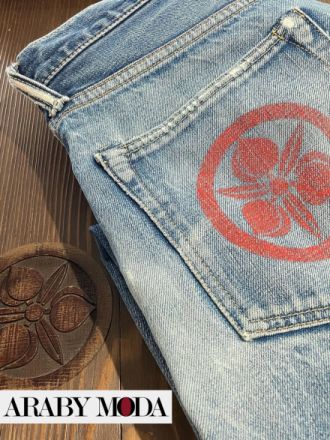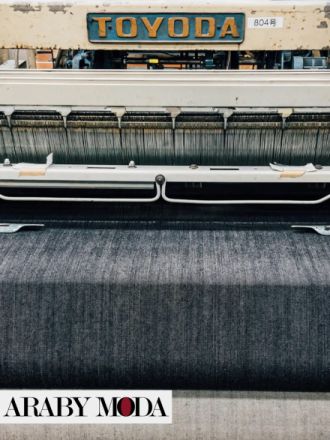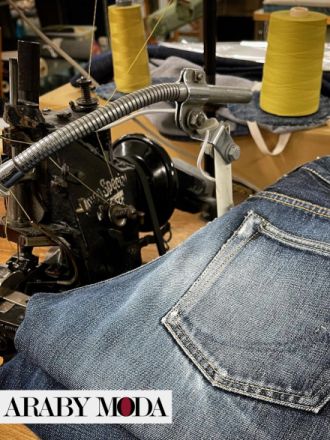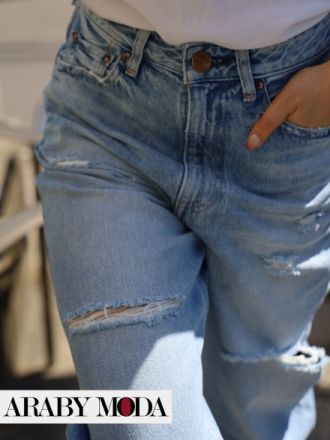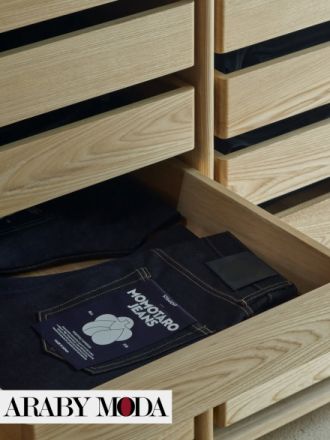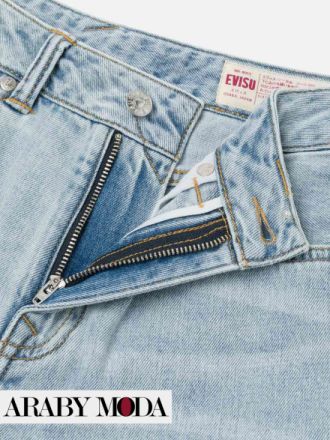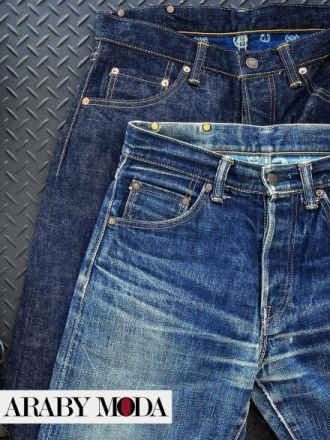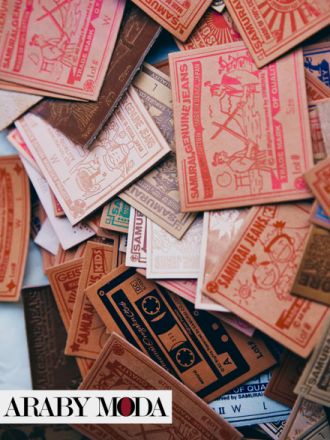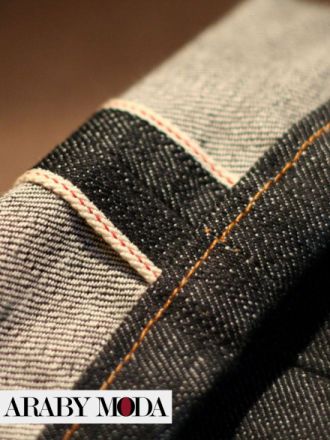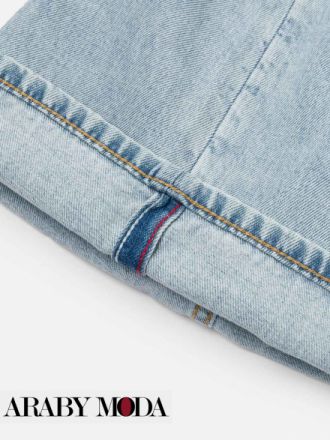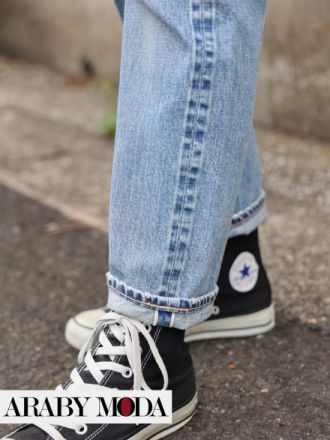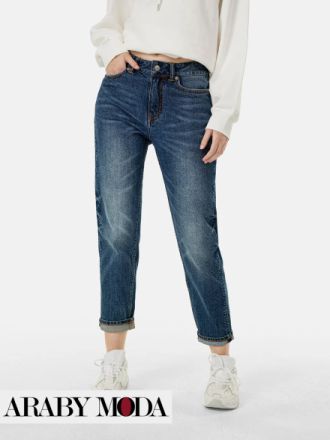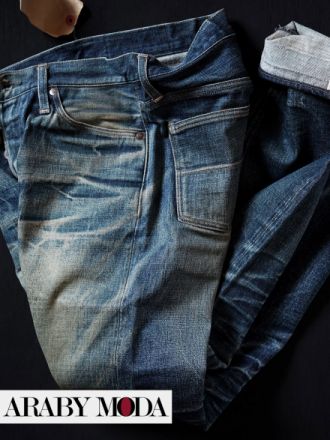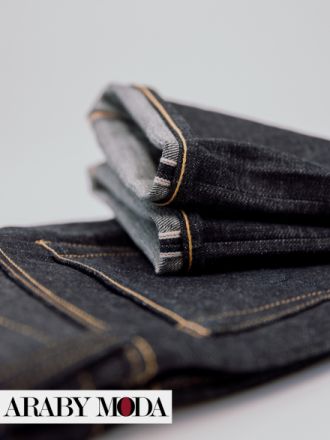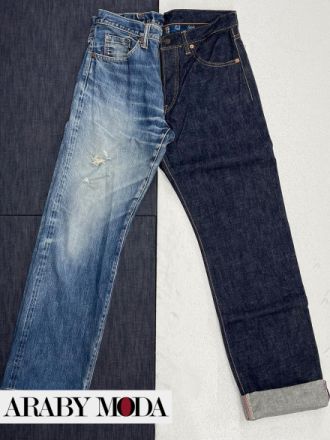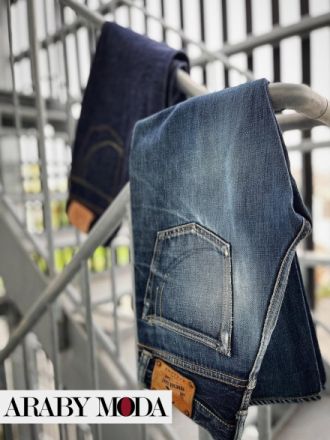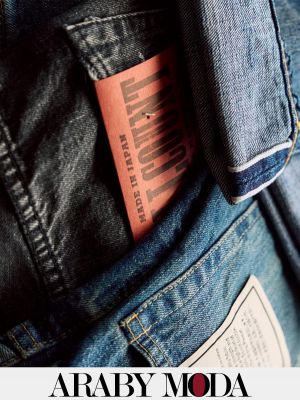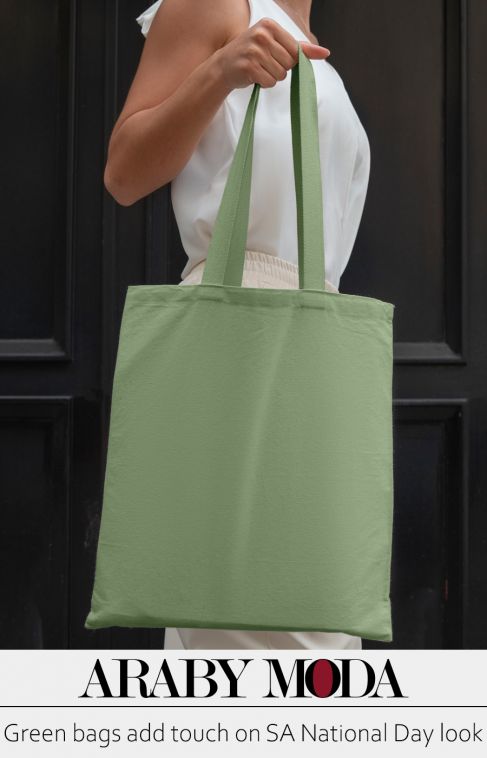Why Japanese jeans are the caviar of denim world?
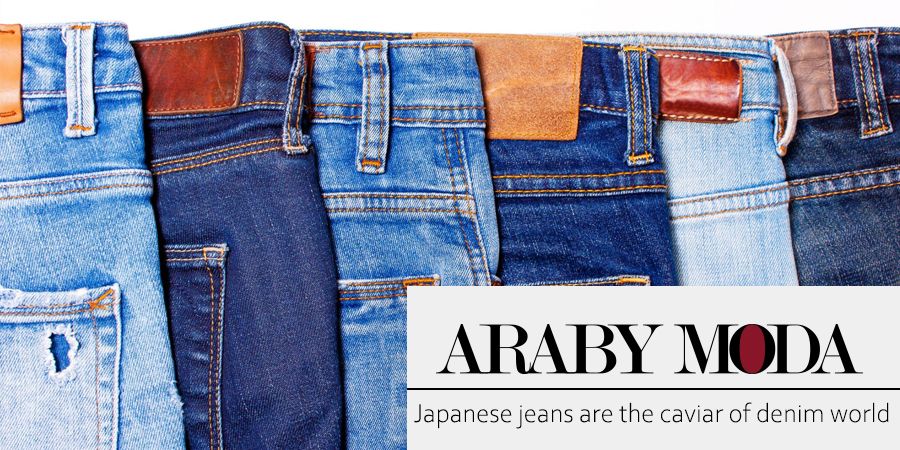
In an age where trends are constantly changing and fast fashion is like fast food, Japanese jeans are like black caviar on the table, rare and refined, not for everyone, but for true gourmets who understand everything about what is high class.
Everyone looks at Japan as if it is another planet, especially with its ability to adopt the best ideas and develop them to perfection, and this is exactly what happened with the American-inspired jeans for Levi's, proving once again that the student is better than his teacher.
Japanese jeans are a separate world in which everything is different, where fabrics are denser and production is slower and more complex, sticking to its roots, so if you are a lover of exceptional fashion in Qatar, you should study this article to know what are the reasons behind its classification as the best in the world.
Premium materials & craftsmanship in Japanese jeans
Just as the taste of bread depends on the quality of the flour, the luxury of Japanese jeans depends primarily on perfect and meticulously selected cotton from Zimbabwe, Peru, India, USA and Australia or cotton grown in Japan, often long-staple cotton that is hand-picked, to be the highest quality and most expensive, just like the summit of Mount Fuji.
Since Japanese brands still hold on to the tradition of making jeans, the steps are completely manual, long and laborious, from weaving to tanning to gain their deep, luscious color and durability to last you for many years after all those stages.
Passion and Traditional Techniques in Japanese Jeans
A true passion for jeans and an old-fashioned, traditional method of production yields a result that no one else can achieve. In a world where fashion moves at breakneck speed, Japanese artisans seem to have decided to take a pause and reinvent the idea of jeans themselves as cultural icons. They still favor shuttle looms from the 1950s and 1970s rather than modern automated factories.
These machines and shuttle looms are slower and require great skill in maintenance and repair, and most importantly patience and full participation in the process by an experienced craftsman, but they produce a unique denim fabric, with a dense and strong texture and a soul woven into it, each meter of this jeans/denim is like a masterpiece by a Japanese artist painted by his own hand, because thanks to manual settings, the shuttle loom is able to produce different and unique types of denim with different textures and textures.
Exclusive Limited Edition from Japanese Jeans
Like an uninhabited island in the ocean of mass production, where everyone is looking for quantity and not quality, Japanese jeans remain the embodiment of rarity and exclusivity, exceptional people will not be surprised that there are small family workshops that still produce Japanese jeans completely manually and sometimes on one loom, and this is not exceptional with Japanese brands, they rely on offering limited and exclusive quantities to be one of the lucky ones to own them, because here you carry originality and creativity.
Mastery in the Details of Japanese Jeans
The production of jeans is an integrated engineering, starting from cotton threads to a huge world of sewing, this complex structure integrates many elements including pockets, seams, buttons and pins. Each one has its own importance and role in this elaborate product, and there is no one better than the Japanese, who are known for their stereotypical image that takes care of these details and works responsibly and diligently to the fullest extent.
These details in Japanese jeans, you will find that brands are interested in emphasizing them through handmade leather patches and thick embroidery based on antique sewing machines that allow the creation of intricate stitches that give each brand a distinctive imprint, all while remembering that denim fabrics alone are a story to be told for history.
Selvedge Edges on Japanese Denim are unique
Japanese denim is characterized by the legendary selvedge hems, which are the result of the work of old shuttle looms, unlike modern machines, as the hems are not cut here, but are wrapped with colored threads, often red, which makes them durable and does not deteriorate over time, and has a more accurate and beautiful appearance.
These edges are easy to recognize in Japanese jeans, because all you have to do is twist the jeans slightly along the inner seam to notice a thin, thick line, which is not just a decoration but an indication of the origin and quality of the denim. It is worth noting that some Japanese brands change the color of the thread from red to others, but this does not change the meaning, so when you see selvedge edges, know that you are in front of a valuable piece of Japanese jeans and do not hesitate to get them quickly before someone steals them.
The beauty of aging and fading of Japanese jeans
Aging Japanese jeans is like your personal life story printed on the denim fabric, because it is mostly made of real raw denim with all its advantages and disadvantages, despite its density and hardness as an armor, it requires time and patience to form a true friendship that strengthens over time, it will gradually adapt to your body shape and curves, as if it lives with you every day.
The process of adaptation and beautiful aging in Japanese jeans is something we adore and unlike the habit of demanding everything to be in our mood from the first moment, this experience will make you fall in love with the classic touch and refuse to trade it in for ten new jeans from other brands!
Japanese jeans are classic and classy
Just like when you read your favorite classic book even if for the fifth time, you find a new sensation in it every time and never get bored of it, the same applies to Japanese jeans, they are always trendy with their timeless, simple, straight, slim cut and dark color and all these things make them a classic and elegant choice that deserves to accompany you for a lifetime.
FAQs about Japanese Jeans / Denim
When did Japanese denim start its history?
The year 1972 is considered a major turning point in the history of modern Japanese jeans, when Kurabo Mills Its first attempt after eight experiments did not see the light, and it was called Kurabo Denim KD-8, to come shortly after Big John, which is now considered the first Japanese denim brand, with the launch of the "M1002" model to be a new chapter in the history of denim culture and the first jeans made entirely in Japan, to be dependent on importing jeans from the United States.
Why are Japanese jeans famous worldwide?
- High-quality materials and handcrafted craftsmanship
- Passion and traditional techniques
- Limited and exclusive production
- Unrivaled craftsmanship in the details
- Selvedge edges of Japanese jeans are testament to durability
- The beauty of jeans is revealed with aging and fading
- Japanese jeans are always classic and sophisticated
What are the pros of Japanese jeans?
- More durable, stronger, and denser
- Variety in texture, density, and weave types
- More beautiful over time, becoming more stylish
- High quality in every detail and metal parts
- Limited production quantity means you will own a unique and rare pair of jeans
- Japanese jeans are made in an old traditional way, which is very valuable nowadays
What are the cons of Japanese jeans?
Japanese jeans have a high price
Raw Japanese jeans are initially stiff and uncomfortable, and take some getting used to
For a unique and beautiful faded color, you will need to use it for some time
In countries with hot climates, this dense denim may not be suitable
Japanese jeans shrink after washing
What is the difference between Japanese jeans & others?
Japanese jeans are characterized by super strength and durability, because they are made on an old-fashioned shuttle loom, in a complex and slow process, and only the finest quality cotton is used, and it is often dyed by hand, this craftsmanship means great attention to detail, fittings and seams, and Japanese jeans are characterized by a special edge called "Selvedge".
What is Japanese Selvedge jeans?
Selvedge is a unique type of Japanese denim, woven on an old shuttle loom, characterized by special folded edges that are tied and sewn with a special contrasting thread, making them more elegant and resistant to tearing, and the word "Selvedge" denotes the highest levels of quality and craftsmanship for a traditional style of production and manufacturing.
What are the top brands of Japanese jeans?
Some of the most popular and best brands of Japanese jeans with high quality and craftsmanship around the world are:
- Edwin
- EVISU
- Iron Heart
- Samurai Jeans
- Momotaro
- Studio D'Artisan
- Big John
- The Flat Head
Are there affordable Japanese jeans brands?
Everyone knows that the prices of Japanese jeans are high, but fortunately, there are other affordable brands that offer excellent quality, such as Japan Blue Jeans, Kojima Genes, Edwin and some models of Uniqlo jeans.
What are the most famous shuttle looms used in Japanese jeans?
The Japanese use shuttle looms dating back to the 1950s and 1970s, the most famous of which is the one made by Toyoda.

